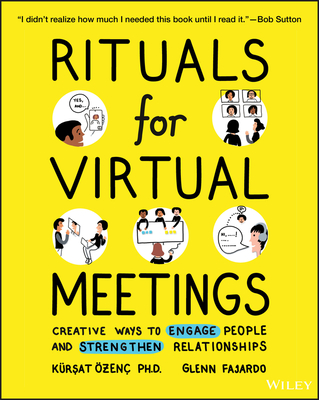New Tech, New Ties: How Mobile Communication Is Reshaping Social Cohesion
暫譯: 新科技,新連結:行動通信如何重塑社會凝聚力
Richard Ling
- 出版商: MIT
- 出版日期: 2010-09-24
- 售價: $1,520
- 貴賓價: 9.5 折 $1,444
- 語言: 英文
- 頁數: 240
- 裝訂: Paperback
- ISBN: 0262515040
- ISBN-13: 9780262515047
-
相關分類:
行動通訊 Mobile-communication
海外代購書籍(需單獨結帳)
商品描述
Winner, Media Ecology Association's 2009 Erving Goffman Award for Outstanding Scholarship in the Ecology of Social Interaction. and Honorable Mention, Sociology & Social Work category, 2008 PROSE Awards presented by the Professional/Scholarly Publishing Division of the Association of American Publishers.
The message of this book is simple: the mobile phone strengthens social bonds among family and friends. With a traditional land-line telephone, we place calls to a location and ask hopefully if someone is "there"; with a mobile phone, we have instant and perpetual access to friends and family regardless of where they are. But when we are engaged in these intimate conversations with absent friends, what happens to our relationship with the people who are actually in the same room with us?
In New Tech, New Ties, Rich Ling examines how the mobile telephone affects both kinds of interactions—those mediated by mobile communication and those that are face to face. Ling finds that through the use of various social rituals the mobile telephone strengthens social ties within the circle of friends and family—sometimes at the expense of interaction with those who are physically present—and creates what he calls "bounded solidarity."
Ling argues that mobile communication helps to engender and develop social cohesion within the family and the peer group. Drawing on the work of Emile Durkheim, Erving Goffman, and Randall Collins, Ling shows that ritual interaction is a catalyst for the development of social bonding. From this perspective, he examines how mobile communication affects face-to-face ritual situations and how ritual is used in interaction mediated by mobile communication. He looks at the evidence, including interviews and observations from around the world, that documents the effect of mobile communication on social bonding and also examines some of the other possibly problematic issues raised by tighter social cohesion in small groups.
The message of this book is simple: the mobile phone strengthens social bonds among family and friends. With a traditional land-line telephone, we place calls to a location and ask hopefully if someone is "there"; with a mobile phone, we have instant and perpetual access to friends and family regardless of where they are. But when we are engaged in these intimate conversations with absent friends, what happens to our relationship with the people who are actually in the same room with us?
In New Tech, New Ties, Rich Ling examines how the mobile telephone affects both kinds of interactions—those mediated by mobile communication and those that are face to face. Ling finds that through the use of various social rituals the mobile telephone strengthens social ties within the circle of friends and family—sometimes at the expense of interaction with those who are physically present—and creates what he calls "bounded solidarity."
Ling argues that mobile communication helps to engender and develop social cohesion within the family and the peer group. Drawing on the work of Emile Durkheim, Erving Goffman, and Randall Collins, Ling shows that ritual interaction is a catalyst for the development of social bonding. From this perspective, he examines how mobile communication affects face-to-face ritual situations and how ritual is used in interaction mediated by mobile communication. He looks at the evidence, including interviews and observations from around the world, that documents the effect of mobile communication on social bonding and also examines some of the other possibly problematic issues raised by tighter social cohesion in small groups.
商品描述(中文翻譯)
獲得2009年媒體生態學會Erving Goffman獎,表彰社會互動生態學的傑出學術貢獻;並於2008年PROSE獎中獲得社會學與社會工作類別的榮譽提名,該獎項由美國出版商協會的專業/學術出版部門頒發。
本書的訊息很簡單:手機加強了家庭和朋友之間的社交聯繫。使用傳統的固定電話時,我們撥打電話到某個地點,懷著希望詢問是否有人「在那裡」;而使用手機時,我們無論朋友和家人身在何處,都能即時且持續地聯繫他們。但是,當我們與缺席的朋友進行這些親密的對話時,與那些實際在同一房間裡的人之間的關係會發生什麼變化呢?
在新科技,新聯繫中,Rich Ling探討了手機如何影響這兩種互動——即通過手機通信進行的互動和面對面的互動。Ling發現,透過各種社交儀式的使用,手機加強了朋友和家人之間的社交聯繫——有時這是以與實際在場的人互動為代價的——並創造了他所稱的「有限的團結」。
Ling主張,手機通信有助於在家庭和同儕群體中培養和發展社會凝聚力。基於Emile Durkheim、Erving Goffman和Randall Collins的研究,Ling顯示儀式互動是社會聯結發展的催化劑。從這個角度,他探討了手機通信如何影響面對面的儀式情境,以及儀式在手機通信中介導的互動中如何被使用。他查看了來自世界各地的證據,包括訪談和觀察,記錄了手機通信對社會聯結的影響,並探討了小群體中更緊密的社會凝聚力所引發的一些其他可能的問題。






























